Ignoring your microwave could cause major issues, including fires. Take care of these microwave problems ASAP.
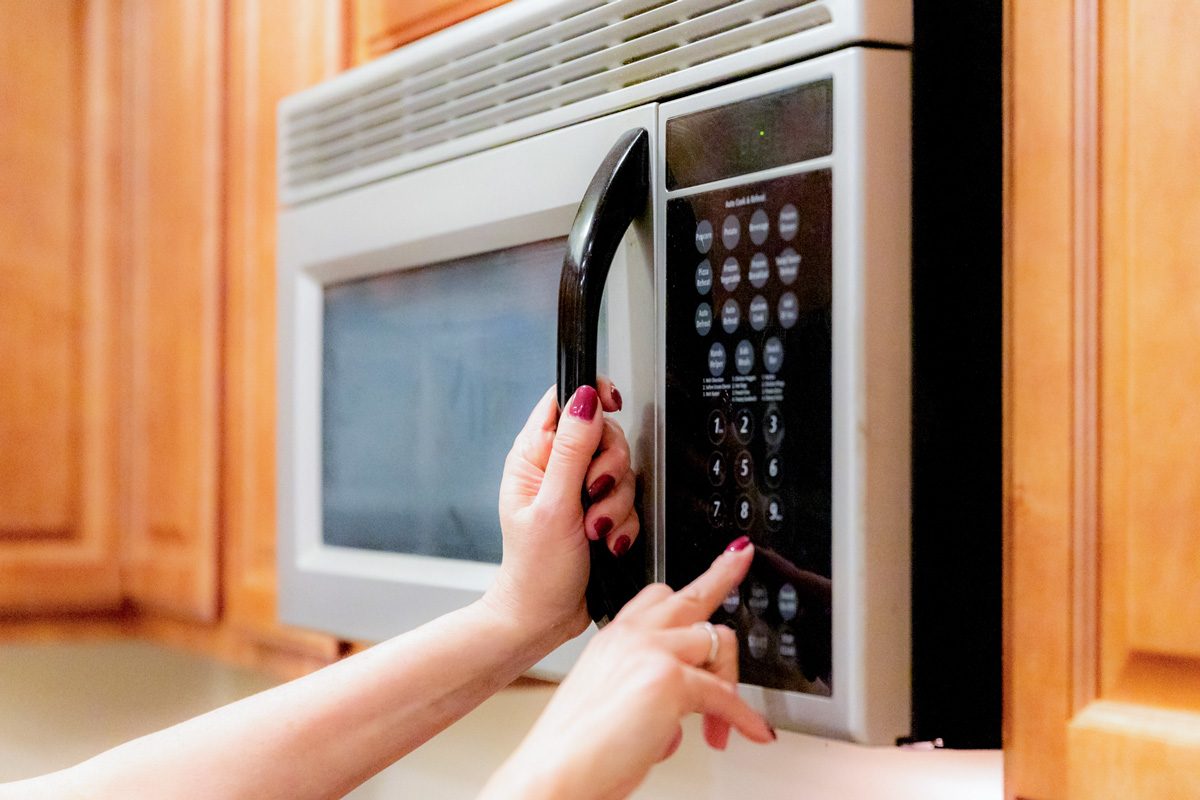
9 Microwave Problems You’ll Regret Ignoring

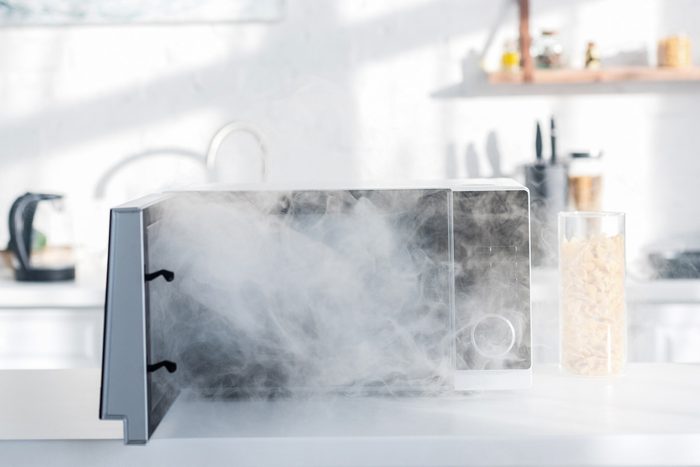
A burning smell
“A burning smell (and smoke) is a sign something is amiss with your microwave, and you should immediately turn off and unplug it,” Shimek says. The problem could be minor, like caked-on food burning to a crisp, or it could be a more serious wiring or electrical issue. Either way, ignoring it could result in a fire.
If it’s food, stop the appliance and let everything cool down inside before opening or cleaning your microwave. If the smell or smoke isn’t coming from the food, Shimek says to call an appliance repair technician to diagnose the problem.
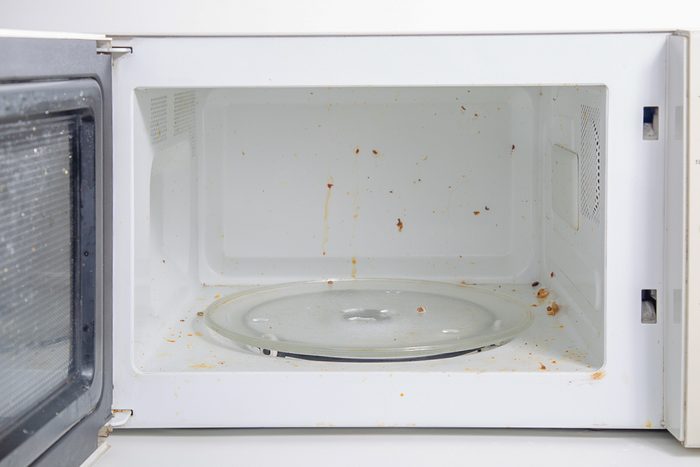
Caked-on splatters
Not cleaning food splatters can make for a very time-consuming chore down the road, but it can also shorten the life of your microwave. “While these may seem harmless, over time microwave splatters can turn rock-hard and even burn the walls of this small appliance,” Shimek says.
To extend the life of your microwave and keep it running in top shape, wipe down the interior daily with a warm cloth. “This will remove residue on the inside of the microwave that can keep air from circulating inside the machine, which is how it heats food,” Shimek says.

Weird sounds while cooking
All microwaves make a low and steady hum while they cook, but if yours starts making other weird noises, it’s time to investigate. First, make sure that you’re not microwaving anything you shouldn’t. Once you’re in the clear with your cooking choices, focus on the strange sounds and where they’re coming from.
Any sort of rattling, clanking or louder-than-normal sound could be a sign of an electrical or motor issue. It’s important to check this out sooner rather than later, since continuing to run your microwave could cause sparks or a fire.
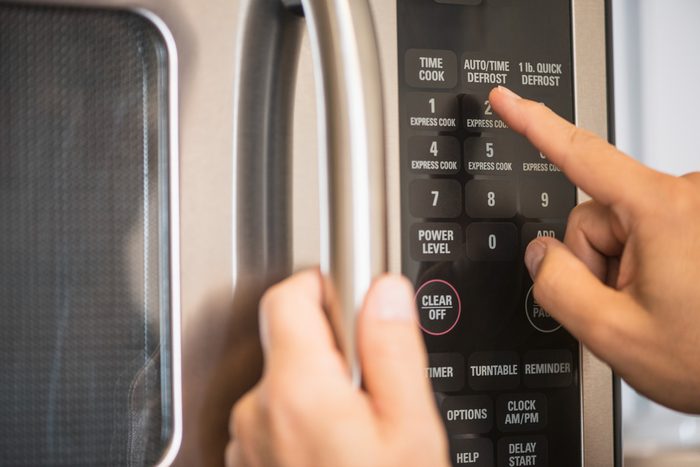
A malfunctioning display or buttons that don’t work properly
If the microwave buttons seem stuck or finicky, or the display screen flickers or blinks, don’t ignore it. Best case scenario is a temporary circuit-board issue. That can be resolved by unplugging and plugging the microwave back in, according to experts at Seattle’s Appliance Service Station. But it could be an electrical issue, which puts the device at risk for fire.
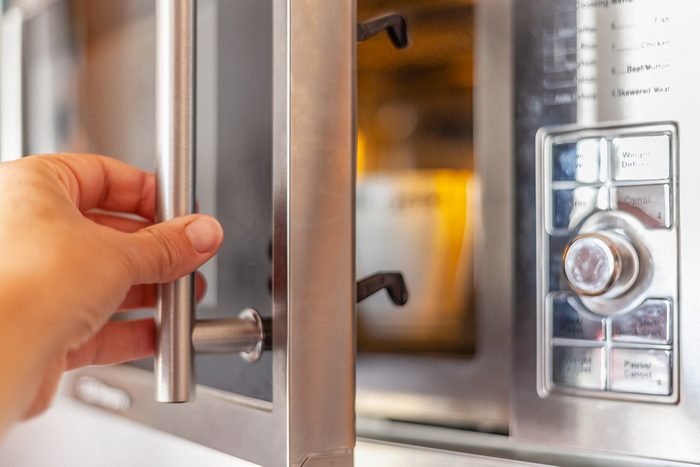
A door that doesn’t close completely
Microwave doors must shut completely to protect you from radiation. While microwaves are safe if they are working properly, the same invisible waves that cook your food could burn your skin and other tissues, according to the FDA.
If your door doesn’t shut all the way, get it looked at or replace the microwave. The cause could be as simple as a loose screw or a piece of food stuck in the door, but it’s nothing to ignore.
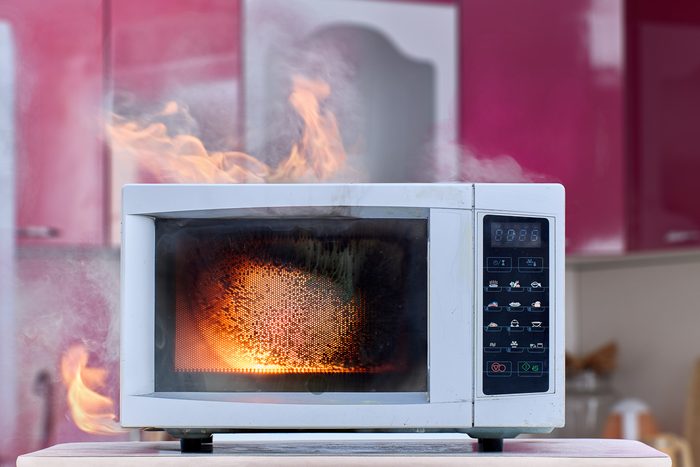
Sparks or fires
A fire is the most dangerous of all microwave problems. If you accidentally get a piece of metal in your microwave or leave a spoon in your leftovers while cooking, that’s one thing. Just remove the item ASAP and continue cooking.
Sparks that don’t come from a forgotten fork in the cooking chamber are signs of a serious electrical issue. This is especially true if sparks are accompanied by smoke or shaking. It’s best to just say goodbye to your microwave in this case, especially if it’s older or covered by the appliance warranty.
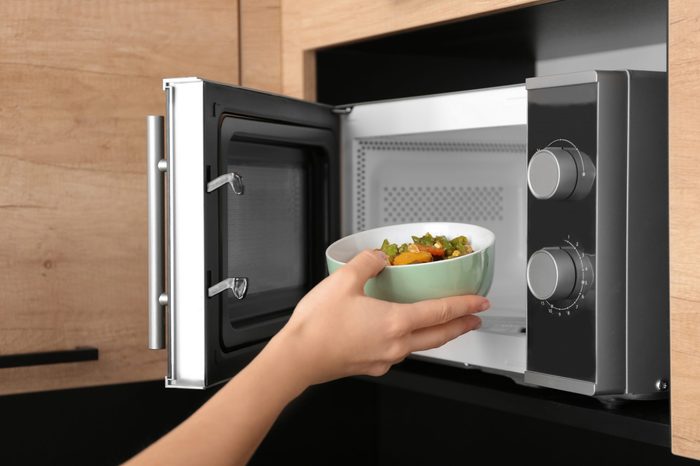
Slower-than-normal cooking
If you’ve noticed your food isn’t warming up as quickly as usual, or if it’s heating unevenly, it could be a sign that your microwave is on the fritz. Reduced heat is generally the result of a poorly functioning magnetron or a circuit board, according to Whirlpool, which requires the help of a technician to fix.
“If your food seems to be cooking too slowly, test [your microwave’s] power by placing one cup of water inside and turning the microwave on for two minutes,” Shimek says. “If the water isn’t piping hot when you take it out, it may be time to replace the unit.”
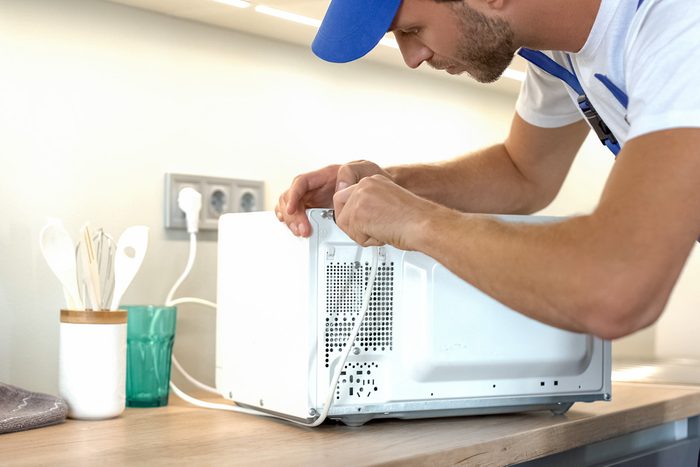
Faster-than-normal cooking
Conversely, Shimek says that if you notice that food is getting way too hot in no time at all, it could also be a sign that your microwave isn’t functioning properly. Again this is likely to be the magnetron or circuit board, which requires technician assistance.
It’s also possible that you’re using non-microwave safe dishes, which absorb excessive amounts of heat, or that you’re microwaving foods that you shouldn’t. In either case, you risk burning yourself or even causing a food explosion. Get your appliance checked out if you’re getting molten lava when you were expecting gentle lukewarm.
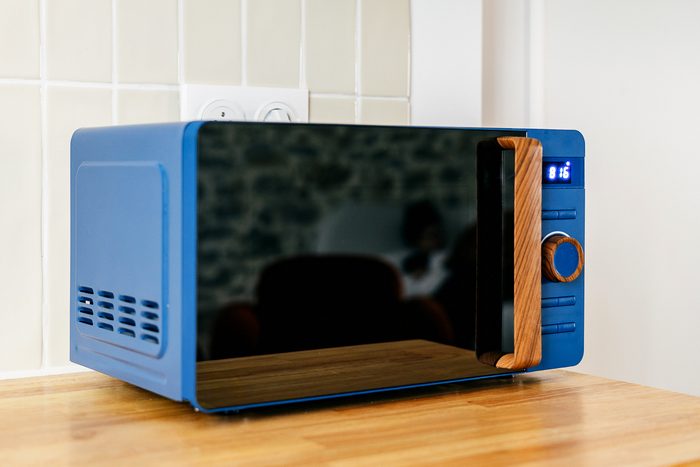
Aging tech
How old is your microwave? If it’s getting up in years, it might be time to replace it. Keeping a decade-old device around—especially if it’s exhibiting any of the above issues—isn’t worth the potential danger. Fortunately, new microwaves are relatively inexpensive, and you’ve got plenty of options to choose from.
FAQs
Why won’t my microwave start?
According to Sears Home Services, if your microwave isn’t starting, it is most likely because the door switch is faulty; the magnetron, diode or high-voltage capacitor has failed; the internal fuse has blown or the electronic control board is faulty. With any of these microwave problems, it is imperative to call a technician.
What is the average life of a microwave?
Modern microwaves last for 7 to 8 years, according to experts at Coast Appliances in Burlington, Ontario. However, the lifespan could be reduced to as few as 4 or 5 years if you use it a lot and ignore maintenance requirements.
About the expert
|
Why trust us
At Reader’s Digest, we’re committed to producing high-quality content by writers with expertise and experience in their field in consultation with relevant, qualified experts. We rely on reputable primary sources, including government and professional organizations and academic institutions as well as our writers’ personal experiences where appropriate. We verify all facts and data, back them with credible sourcing and revisit them over time to ensure they remain accurate and up to date. Read more about our team, our contributors and our editorial policies.
Sources:
- Ron Shimek, president of Mr. Handyman
- Appliance Service Station: “Solution for a temporary circuit-board issue”
- FDA: “Proper sealing of microwave doors”
- Sears Home Services: “Causes of microwave malfunctions”
- Coast Appliances: “How long does a microwave last”




















